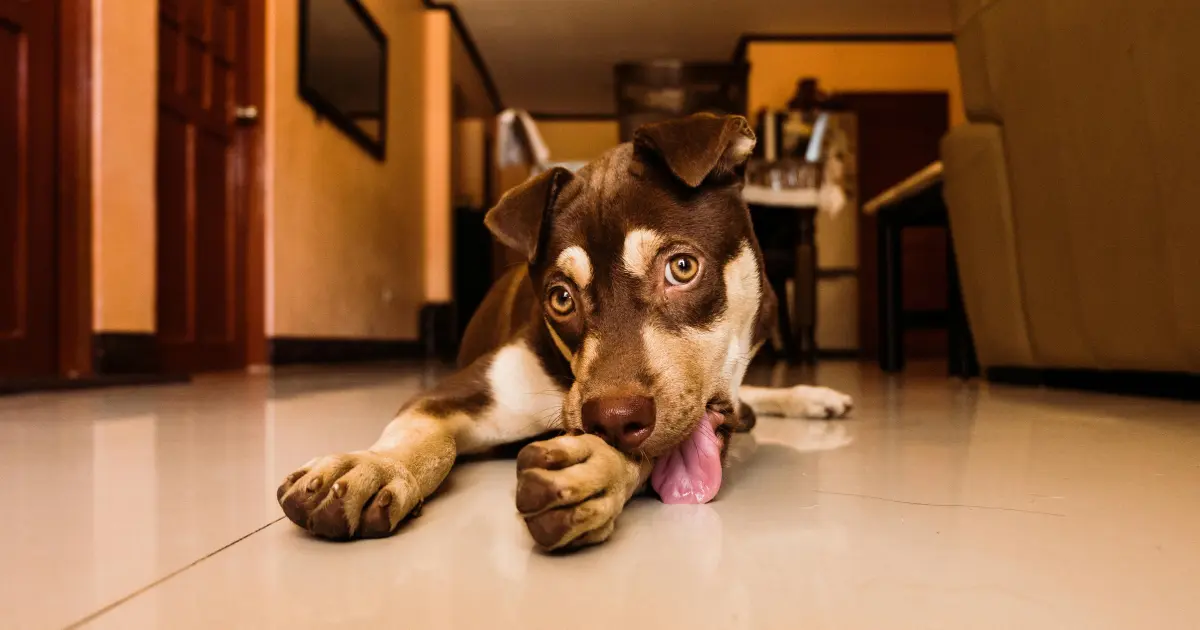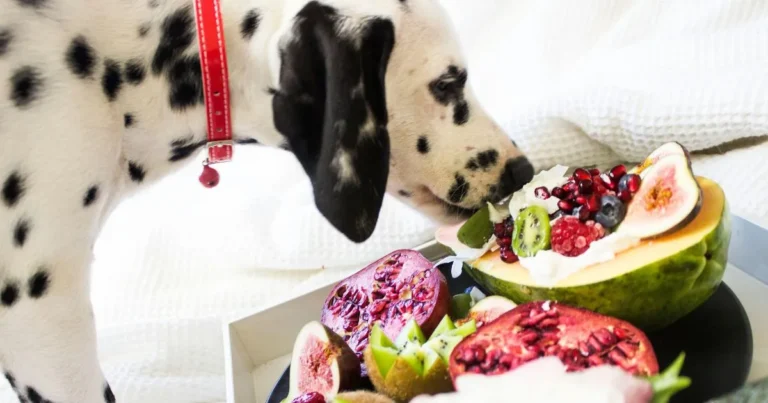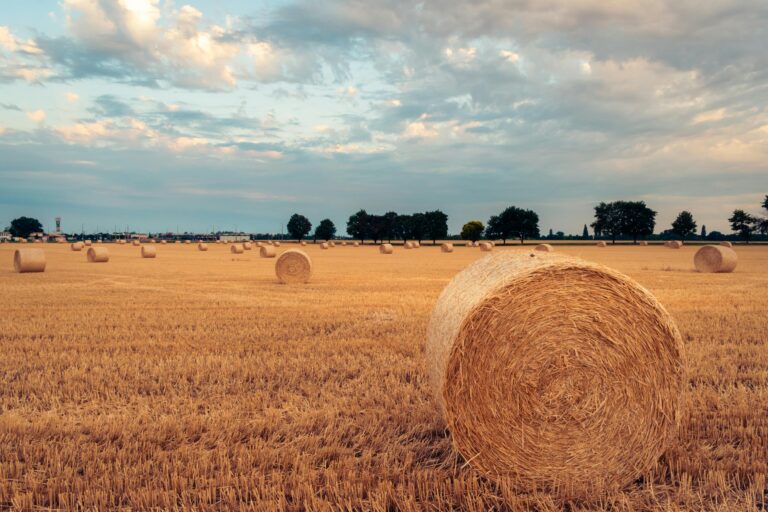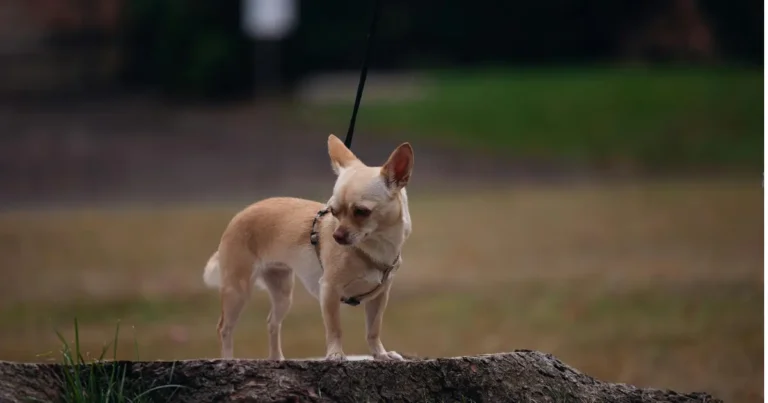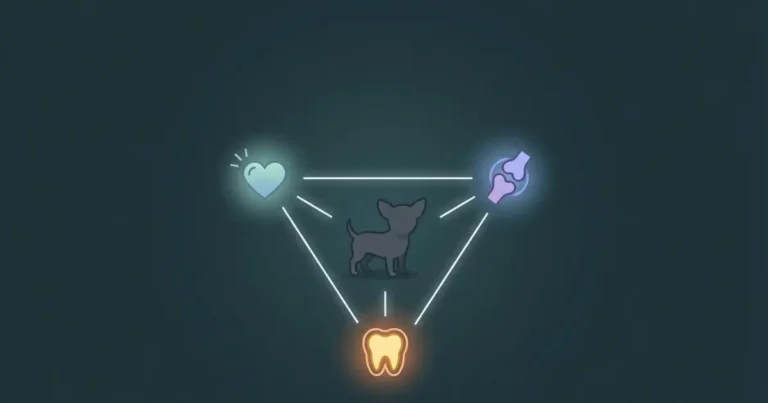Dog Licking Paws Too Much? Here’s What It Means
Table of Contents
If you’ve noticed your dog licking paws more than usual, you’re not alone. Many pet parents see their dogs nibbling or licking paws for minutes at a time and wonder: is this just grooming, or is something wrong?
The short answer is: a little paw licking is perfectly normal. But if your dog licking paws turns into a daily habit, it can be a red flag. Let’s break down why dogs lick their paws, when it’s normal, and when you should step in.
When Dog Licking Paws Is Normal
Dogs naturally groom themselves. A few licks here and there help them clean off dirt, grass, or even crumbs. Imagine your pup coming home from a muddy walk—they might spend a few minutes licking paws, and that’s perfectly fine.
But when licking becomes excessive paw licking—to the point where paws are wet, red, or irritated—it’s usually a sign of something else going on.
Why Is My Dog Licking Paws Constantly?
There are many reasons behind constant dog licking paws. Some are physical, while others are behavioral. Here are the most common causes:
1. Allergies
Just like people, dogs can suffer from allergies. These may include:
- Food allergies (chicken, beef, grains, or dairy are common triggers).
- Seasonal allergies (pollen, grass, mold).
- Environmental sensitivities (dust, detergents, household cleaners).
If paw licking is worse after meals or during spring/summer, allergies may be the cause.
2. Small Injuries
Sometimes the simplest answer is the right one. Cuts, insect bites, or splinters can make your dog licking paws obsessively. If licking is focused on one paw, check closely for small wounds.
3. Infections
Moist areas between paw pads are the perfect home for bacteria and yeast. A smelly, red, or swollen paw plus constant paw licking often points to infection.
4. Parasites
Fleas, ticks, and mites can attack paws too. If your dog licking paws comes with scratching, scabs, or hair loss, parasites may be to blame.
5. Dry Skin & Irritants
Winter salt, hot sidewalks, or harsh cleaning products can all irritate paw pads. Your dog may try to soothe dryness by licking, but excessive licking can make it worse.
6. Stress or Boredom
Not every case is medical. Some dogs use paw licking as a stress reliever. If your dog is left alone often or lacks stimulation, dog licking paws may simply be their way of coping.
Signs That Dog Licking Paws Is a Problem
Not every case of paw licking needs a vet visit, but here’s when to worry:
- Licking until paws are raw, red, or bleeding.
- Persistent swelling or foul odor.
- Limping or pain when paws are touched.
- Loss of fur around the paw.
- Licking multiple paws constantly.
These signs suggest the problem is more than just self-grooming.
What You Can Do at Home
Before rushing to the vet, there are a few steps you can try to ease dog licking paws:
- Inspect paws daily. Look for thorns, cuts, or debris after walks.
- Clean paws. Use warm water or pet-safe wipes.
- Moisturize. Dog paw balms or coconut oil can ease dryness.
- Use paw protection. Dog booties can protect from salt, heat, or rough surfaces.
- Provide distractions. Toys, chews, or puzzles can redirect attention from excessive paw licking.
When to See a Vet
If home care doesn’t help or if you see infections, bleeding, or persistent discomfort, it’s time to call the vet. A professional can check whether dog licking paws is caused by:
- Food or seasonal allergies
- Bacterial or fungal infections
- Parasites or mites
- Underlying anxiety or behavioral issues
Treatment Options for Dog Licking Paws
Veterinary treatment depends on the root cause. Common solutions include:
- Medications: antihistamines, antibiotics, or antifungals.
- Diet adjustments: hypoallergenic or grain-free food.
- Parasite preventatives: monthly flea/tick treatments.
- Topical solutions: medicated sprays, shampoos, or ointments.
- Behavioral training: reducing stress and boredom.
The goal is not just stopping dog paw licking, but addressing what’s causing it.
How to Prevent Excessive Paw Licking
Prevention is always easier than treatment. Here are some habits that keep paws healthy:
- Rinse paws after walks to remove irritants.
- Keep nails trimmed and paw fur neat.
- Avoid walking on hot pavement or salted sidewalks.
- Provide a balanced diet with omega-3 fatty acids for healthy skin.
- Give your dog enough exercise and mental stimulation.
Final Thoughts
A little dog licking paws is completely normal—it’s part of your pup’s grooming routine. But when paw licking becomes excessive, it’s your dog’s way of telling you something’s wrong.
By paying attention to when and how often your dog licks their paws, you can catch allergies, injuries, or stress before they get worse. Start with simple home care, but don’t hesitate to see a vet if licking becomes constant or painful.
At the end of the day, your dog can’t say, “Hey, my paw hurts!” But with careful observation, you can read the signs—and help your furry friend stay comfortable and healthy.

